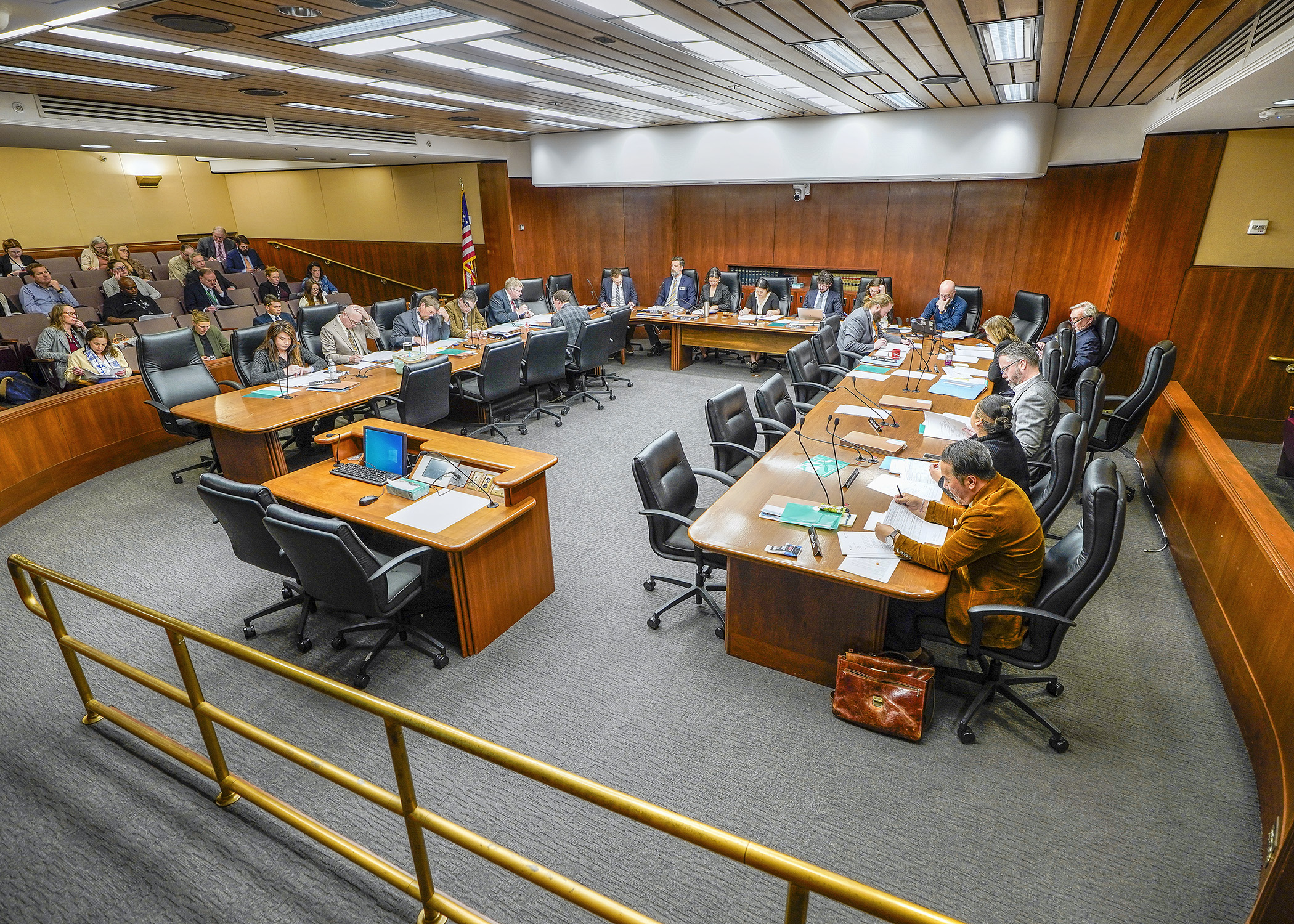Nitrate treatment represents bulk of spending proposed in ag finance, policy bill

One of the first orders of business in the House Agriculture Finance and Policy Committee this year was an Environmental Protection Agency directive to address drinking water contamination caused by nitrogen fertilizer.
One of the committee’s final actions could be passage of a finance and policy bill with short-term solutions to help families get clean water.
Sponsored by Rep. Samantha Vang (DFL-Brooklyn Center), HF3763, as amended, calls for about $4.5 million in supplemental spending with most going for nitrate treatment.
Spending and policy provisions covering pesticides, fertilizers, grain elevators and grant programs are included in the bill, which members walked through Tuesday. Amendments could be added Thursday before a committee vote.
The bill would appropriate $4.3 million from the General Fund to the Department of Agriculture, with $3.1 million going to address drinking water contaminated with nitrates. The department has proposed economic assistance for things such as reverse osmosis systems. Priority would be given to residences with pregnant people, small children or infants.
Other General Fund appropriations include:
- $300,000 for soil health equipment grants;
- $300,000 for beginning farmer assistance grants;
- $200,000 for the Agricultural Utilization Research Institute;
- $200,000 to expand Farm-to-School grants, allowing home-based daycare providers to participate; and
- $100,000 biofuels infrastructure grants.
[MORE: View the spreadsheet]
In future years, money for a private well drinking water assistance program operated by county health boards would come from a 40 cent per ton fertilizer fee, which currently funds the Agricultural Fertilizer Research and Education Council until June 30, 2025.
Rep. Paul Anderson (R-Starbuck) said it is almost ethically wrong to take those dollars and use them for a state purpose.
Republicans also balked at a provision that would repurpose interest from the grain indemnity fund to fund farmer’s market equipment grants.
Other provisions in the bill would:
- prohibit hatching ducks or geese in public and charter schools unless it is a Future Farmers of America or 4-H waterfowl hatching program. Chicken hatching would still be allowed;
- make it easier for small elevators to abide by provisions in the grain indemnity fund by altering accounting practices;
- create processes for deregistering and emergency registration of fertilizers including input from a panel of experts;
- make pesticide applicator license exams available in Spanish;
- prohibit people younger than 18 from getting pesticide application licenses;
- modify elk damage claims reporting and set a limit of $1,800 per year for fence damage; and
- create a carbon credit market working group.
***
What’s in the bill?
The following are selected bills that have been incorporated in part or in whole into the agriculture finance and policy bill:
Related Articles
Search Session Daily
Advanced Search OptionsPriority Dailies
Legislative leaders set 2026 committee deadlines
By Lisa Kaczke Legislative leaders on Tuesday officially set the timeline for getting bills through the committee process during the upcoming 2026 session.
Here are the three deadlines for...
Legislative leaders on Tuesday officially set the timeline for getting bills through the committee process during the upcoming 2026 session.
Here are the three deadlines for...
Latest budget forecast projects nearly $2.5 billion surplus, but red ink down the road
By Mike Cook Three weeks before Christmas, state budget officials provided some merriment to Minnesotans. However, Grinch-like transformations lurk.
Released Thursday, the November ...
Three weeks before Christmas, state budget officials provided some merriment to Minnesotans. However, Grinch-like transformations lurk.
Released Thursday, the November ...